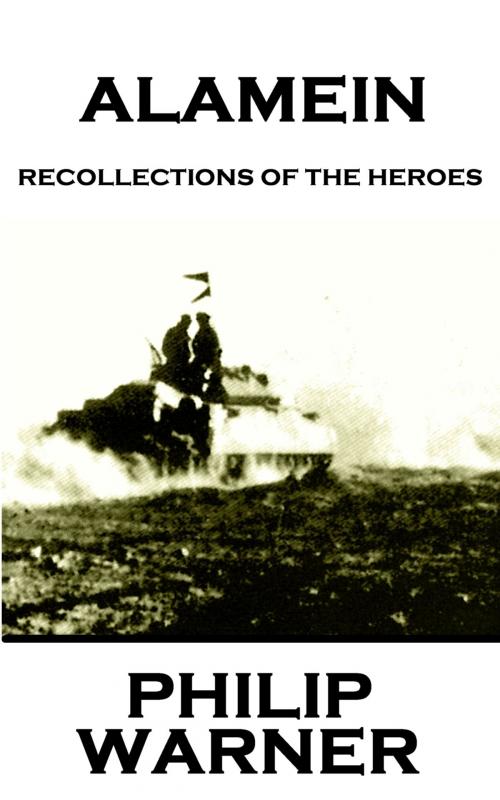| Author: | Phillip Warner | ISBN: | 9781859595114 |
| Publisher: | Class Publishing | Publication: | December 15, 2009 |
| Imprint: | Class Warfare | Language: | English |
| Author: | Phillip Warner |
| ISBN: | 9781859595114 |
| Publisher: | Class Publishing |
| Publication: | December 15, 2009 |
| Imprint: | Class Warfare |
| Language: | English |
In July 1942 German and Italian forces were on the point of sweeping away the remainder of the British resistance in the Middle East and triumphantly overrunning Egypt. If this had happened, the disaster for the Allies would have been irretrievable. Instead Rommel’s victorious army was checked on the Alamein line in what became the first battle of Alamein. Two months later with General Bernard Montgomery now commanding the 8th Army and General Harold Alexander as C-in-C Middle East, another Axis thrust was held in the second battle of Alamein at Alam El Halfa. On 23 October the Allied forces finally went on the offensive and, after two long weeks of bitter fighting, Rommel’s forces were in head long retreat. The tide had truly turned in one of the British Army’s most celebrated victories. The higher strategy of these battles has been well covered in other books, but this one is about the men who fought in the tanks and minefields, in the sand dunes and behind the guns. The experience of the desert has long been a mystery to those who were not actually fighting in it. Using a fascinating selection of first hand accounts from battalion commanders and private soldiers alike, Philip Warner reveals the loyalty and chivalry, courage and hardship, humour and compassion which were an integral part of this remarkable series of battles. These accounts are preceded by a comprehensive introduction and the text is extensively illustrated with maps and photographs. As a result Alamein is a totally satisfying work of military history.
In July 1942 German and Italian forces were on the point of sweeping away the remainder of the British resistance in the Middle East and triumphantly overrunning Egypt. If this had happened, the disaster for the Allies would have been irretrievable. Instead Rommel’s victorious army was checked on the Alamein line in what became the first battle of Alamein. Two months later with General Bernard Montgomery now commanding the 8th Army and General Harold Alexander as C-in-C Middle East, another Axis thrust was held in the second battle of Alamein at Alam El Halfa. On 23 October the Allied forces finally went on the offensive and, after two long weeks of bitter fighting, Rommel’s forces were in head long retreat. The tide had truly turned in one of the British Army’s most celebrated victories. The higher strategy of these battles has been well covered in other books, but this one is about the men who fought in the tanks and minefields, in the sand dunes and behind the guns. The experience of the desert has long been a mystery to those who were not actually fighting in it. Using a fascinating selection of first hand accounts from battalion commanders and private soldiers alike, Philip Warner reveals the loyalty and chivalry, courage and hardship, humour and compassion which were an integral part of this remarkable series of battles. These accounts are preceded by a comprehensive introduction and the text is extensively illustrated with maps and photographs. As a result Alamein is a totally satisfying work of military history.















